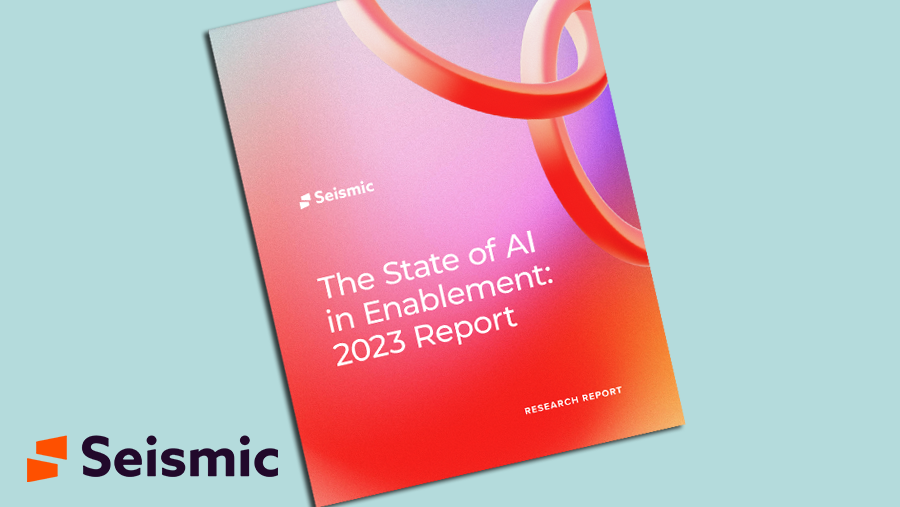A recent report by Seismic, the foremost name in enablement, has cast a spotlight on the relationship between artificial intelligence (AI) and go-to-market (GTM) strategies. Surveying over 200 UK-based management-level professionals across sales, enablement, and customer success roles, the findings offer a promising outlook for AI in GTM processes, with a projected revenue increase of 23% in the next five years due to AI adoption.
In the face of economic challenges, a substantial 80% of GTM leaders are banking on AI to drive revenue growth. This optimism is reflected in their investment plans, with 87% of those currently using enablement technologies planning to increase their budgets by 19% in the coming year. This inclination towards higher investment is largely influenced by recent advancements in AI.
Despite the eagerness to invest, there’s a notable disparity in the understanding of AI’s application within GTM processes. Only 49% of respondents feel very or somewhat familiar with how AI can be utilized in sales enablement. This knowledge gap underscores the importance of enablement tools such as those provided by Seismic, which facilitate the integration of AI within business operations, enhancing market speed, efficiency, win rates, and return on investment.
Seismic’s tools also aim to bridge this understanding gap, as evidenced by the 75% of GTM leaders eager to implement more AI solutions within their teams in the next year. Additionally, 22% have confirmed forthcoming budget allocations specifically for AI projects and initiatives.
Doug Winter, CEO and co-founder of Seismic, emphasized the significance of AI-powered enablement technology, especially given the recent market challenges. He stated, “When an organisation’s enablement efforts are streamlined with AI technology, it drives greater GTM efficiency, operational optimisation, and better buyer experiences – all of which translate into a stronger bottom line.”
The report also reveals a competitive edge for AI-adaptive businesses. A majority (68%) believe that companies not effectively leveraging AI in their GTM will lag behind competitors in the next three years. AI-enablement tools are currently being used for content analytics (63%), content distribution (48%), and content creation, editing, and management (46%).
The positive impact of AI tools is tangible, with 76% of businesses observing an increase in customer satisfaction post-implementation. Moreover, 83% have seen a rise in brand engagement, and 78% of GTM leaders who have adopted AI tools report positive outcomes following initial adoption challenges.
However, implementing AI is not without its hurdles. Challenges such as integration issues (56%), lack of understanding (54%), and data consistency and quality concerns (37%) have been reported. Despite these challenges, 47% of GTM leaders recognise AI as the driving force behind evolving customer experiences today.
The data from Seismic’s report is conclusive: while adopting AI is challenging, the benefits—increased customer satisfaction, enhanced brand engagement, and overall revenue growth—significantly outweigh the initial obstacles. As businesses continue to navigate the complexities of AI integration, the role of enablement technologies like those offered by Seismic becomes increasingly vital.
Download Seismic’s The State of AI in Enablement: 2023 Report here.


 Whether you want to learn how to use LinkedIn, X or Facebook for marketing, or need to brush up on business skills like leadership, presentation skills or managing meetings, you will find something to enhance your professional skills with these on-demand courses.
Whether you want to learn how to use LinkedIn, X or Facebook for marketing, or need to brush up on business skills like leadership, presentation skills or managing meetings, you will find something to enhance your professional skills with these on-demand courses.